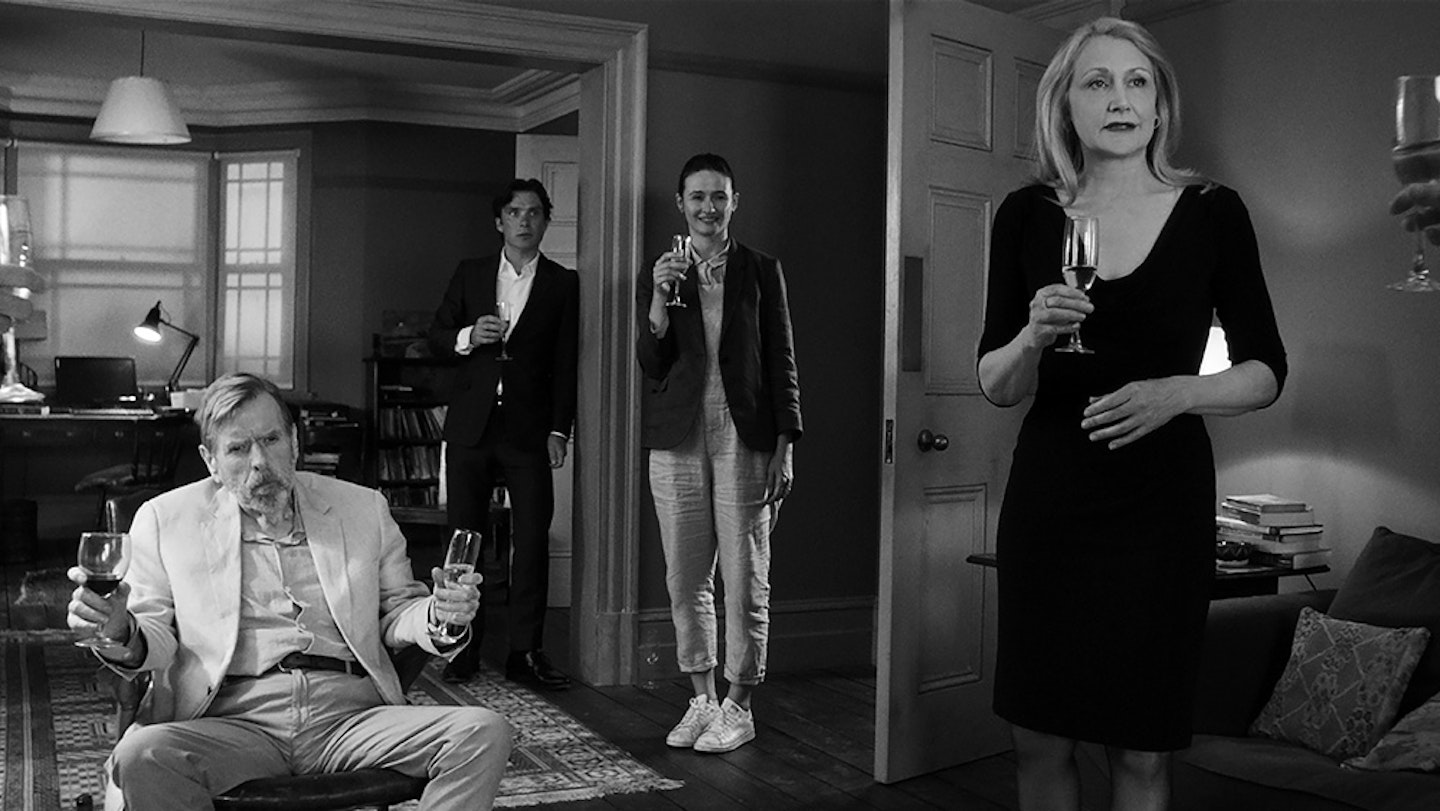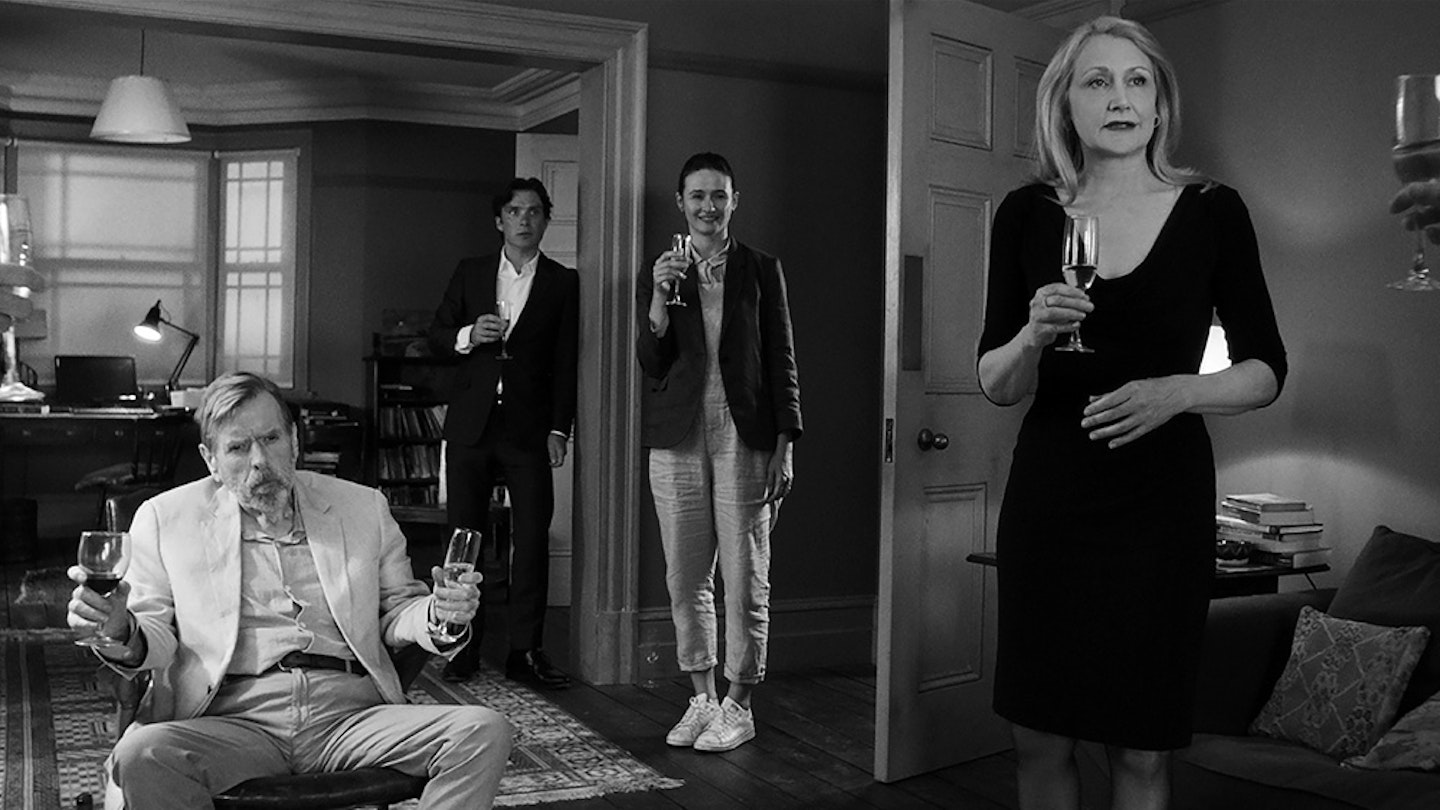In a Quentin Tarantino movie, the arrival of a group of people into a confined space is usually a cue for bloody carnage. In Sally Potter’s peppery dinner party comedy — The Hateful After Eight, if you will — the shots fired are of the verbal kind, but just as devastating in their own way. This satirical dissection of the secrets people keep, filmed in stark black and white, calls to mind The Discreet Charm Of The Bourgeoisie. In Luis Buñuel’s surrealist romp a group of middle-class types is inexplicably trapped at a dinner party; here, the door is at hand but hostilities unfold in such sudden and unexpected ways, no-one gets a chance to use it.
A sharp-edged, claustrophobic parlour piece that puts the boot into middle-class mores.
The get-together is hosted by Kristin Scott Thomas’s fast-rising politician and her long-sacrificing partner, Timothy Spall’s sullen husk of an academic. It’s meant to be a celebration of her promotion to the post of Shadow Health Minister, but as friends arrive and the room fills, her husband drops a bombshell of his own that puts the brakes on things. Cillian Murphy’s coked-up financier, carrying a gun for reasons that become clear later, and Emily Mortimer and Cherry Jones bickering couple hardly still the troubled waters; while Scott Thomas’s continuous texting with a secret paramour distract her from her hostess duties and the chance to inject some much-needed bonhomie back into the evening. Before long, windows are being smashed, voices raised and violence threatened. You’re soon left wondering if they shouldn’t have just gone with Deliveroo and a DVD.

Potter’s seasoned ensemble is clearly having a blast with the pointed patter and barbed exchanges. There’s a multinational flavour to the cast that the writer/director mines to add cultural clashes to the explosive mix. Bruno Ganz (in a role as far from Downfall’s Fuhrer as it’s possible to get) is Gottfried, a hippy-dippy spiritual healer on the sharp end of his estranged American partner’s (a hilariously withering Patricia Clarkson) putdowns. “Shut up, Gottfried, your clichés are unbearable,” she barks as he vainly tries to bring calm to proceedings. Even the English guests are soon putting aside their national reserve to get stuck in as the bitchy conversation toggles through everything from health care and politics to music and Gottfried’s potentially fascistic tendencies (maybe he’s not as far from Downfall terrain as he seems — at least as far as his wife is concerned).
There’s no great pay-off to all this venomous back-and-forth, but with dialogue and acting this sharp, it hardly matters. For anyone who’s been to a dull dinner party and secretly yearned for something — anything — to happen, The Party is 70 economical minutes of guilty pleasure.
